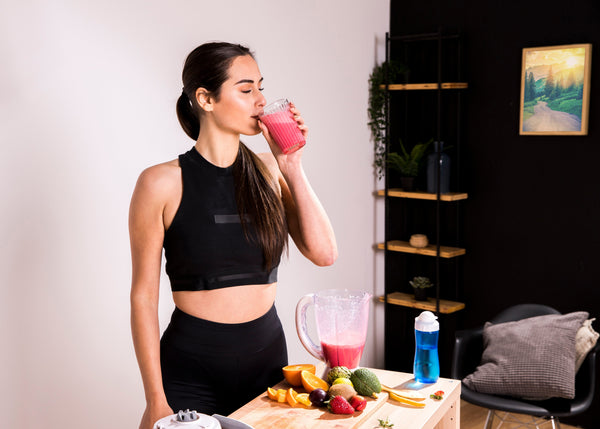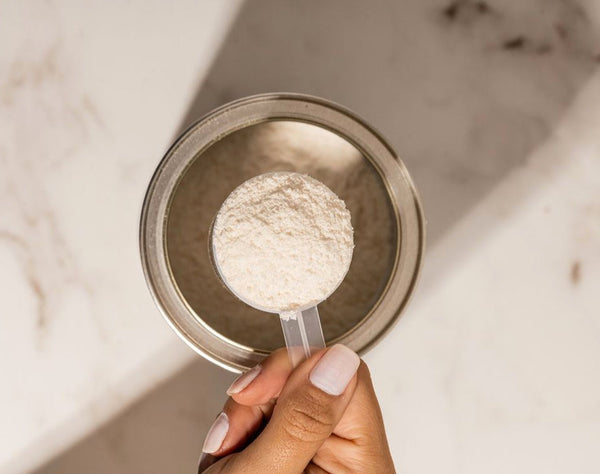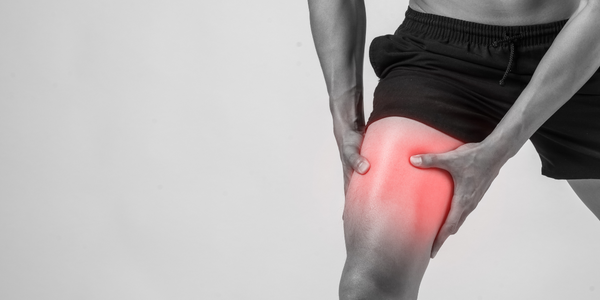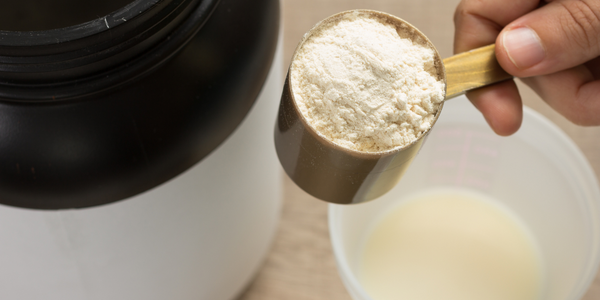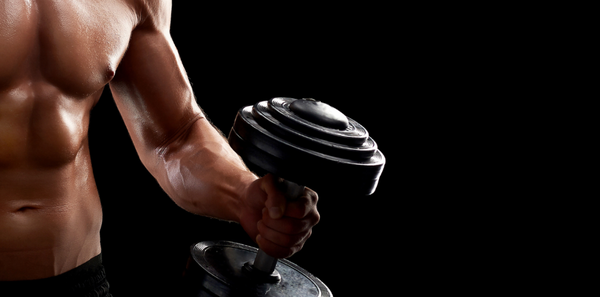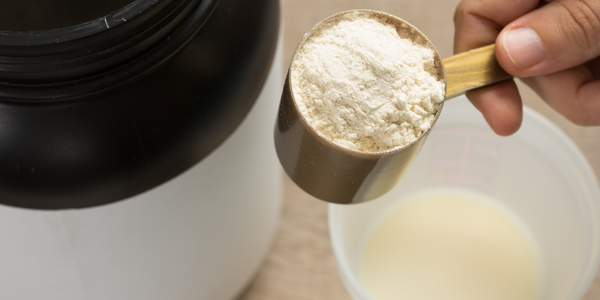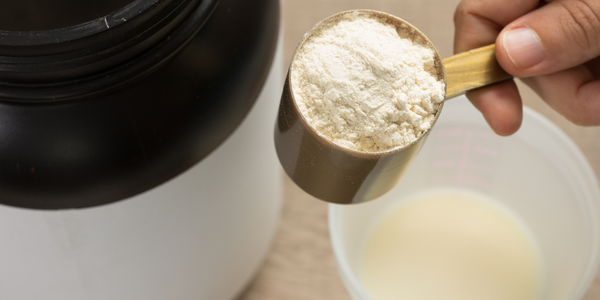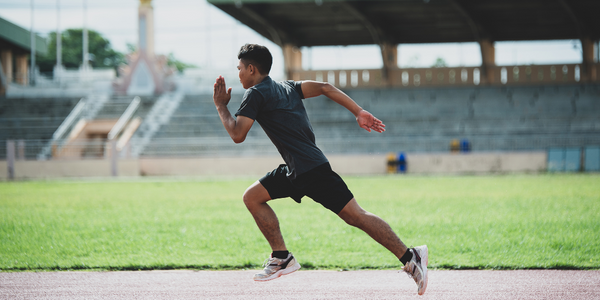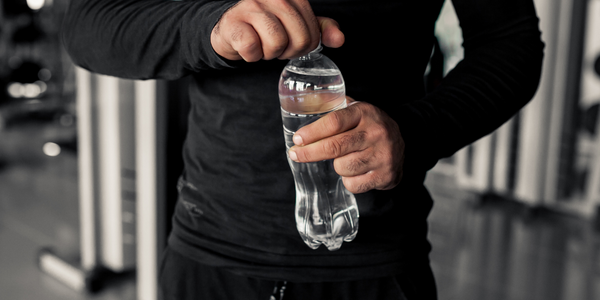Regular exercise combined with a good eating plan can help you lose or gain weight, and protein supplements have been proven to help in the process. If you are among the ones who struggle to gain weight due to a high metabolism or simply wish to increase your lean muscle mass, muscle-gainer protein supplements can help you achieve the same. However, having muscle gainer protein is just one piece of the puzzle. If you are planning to start exercising, pairing it with the right sports nutrition is important to achieve the desired results.
Aiming for a healthy diet will not only keep you hydrated and energized but will also propel you toward your fitness and weight goals. A sound sports nutrition plan includes a balance of healthy carbs, lean proteins, and beneficial fats, complemented by adequate dietary fiber, water, and electrolytes. By adhering to such a plan, you can replenish lost nutrients and facilitate your muscles' recovery after exercise. Scroll down to learn how you can take your workout to the next level.
Pre- and Post-Exercise Nutrition Tips
- Fuel up before you start
Exercising on an empty stomach is equivalent to driving a car without fuel. Our blood sugar levels are lowest in the morning. And so, fueling your body before you make it work is essential. High volumes of exercise performed by athletes in a fasting state exhibited negative energy balance, causing hormonal and immune dysfunction.
- Keep it optimal
While skipping meals can lead to light-headedness, it can also cause your blood sugar levels, or BP, to drop beyond the normal range. Eating too much can deprive your brain of a steady supply of blood and oxygen and, make you sluggish. So it's important not to undereat or overeat.
- Time your portion sizes
Your pre-workout meal may not necessarily be a heavy meal but a light meal with a combination of carbs and proteins. Oatmeal with milk or a light-carb snack such as fruit or yogurt 1-3 hours prior to your exercise should suffice. A larger meal could include Brown rice with steamed vegetables and low-fat chicken/paneer curry around 3–4 hours before your workout. Maintaining time gaps between meals and exercise is essential, as the processes of digestion and exercise are both blood- and oxygen-demanding processes, and when they are done at the same time, it can impact your performance. Moreover, eating a meal very close to exercise can cause gastric discomfort as the blood flow is directed towards your exercising muscles instead of your digestive tract, leading to excessive gas, bloating, or indigestion.
- Replenish
Refuel within 30–60 minutes of your workout. Since carbohydrates are the preferred source of energy during exercise, replenishing carbohydrates helps the body prepare for the next workout session. Meanwhile, refilling on proteins helps in the recovery and repair of the muscles.
- Rehydrate with non-sugary drinks
60% of our body is made up of water. A loss of even 2–3% of water can impact one’s athletic performance. Therefore, it is extremely crucial to replenish bodily fluids that are lost through sweating during exercise. Optimum hydration helps your body restore these lost electrolytes and fluids while helping you maintain your body temperature and enhance your performance levels. Water should be your preferred source of hydration; however, if you are exercising for more than 60 minutes, you may also opt for sports drinks or 100% fruit juice to prevent dehydration. Sports drinks are beverages that contain electrolytes along with carbs, but most of the drinks available on the market are also high in sugar. Drinking too many of these can increase your risk of developing diabetes, obesity, heart disease, and gout. So when opting for sports drinks, go for the non-sugary ones.
- Keep it complex
Select complex carbohydrates over simple ones. Complex carbohydrates are a good source of dietary fiber that does not spike your blood glucose, and they are also nutrient-dense, unlike simple carbohydrates. Dietary fiber benefits the body further by promoting satiety, helping with bowel movements, and reducing the risk of diabetes and cardiovascular diseases. Brown rice, quinoa, whole-grain bread, pasta, fruits, and vegetables are examples of complex carbohydrates. For optimum fiber intake, you may also add a fiber supplement to your diet.
- Choose lean protein
Supplementing with protein while exercising is critical for preventing muscle soreness and wasting. Lean cuts of meat, low-fat dairy, poultry, and fish, along with lentils, beans, and pulses, are some of the best sources of protein. How much protein per day is needed when exercising depends on one's current weight and the intensity of the exercise. An average adult who does not exercise would need around 0.8g of protein per kg of body weight. While people who exercise regularly would need between 1 and 1.2 grams of protein per kg body weight.
- Gain with supplements
If you are unable to meet your protein requirement through diet alone, the addition of a muscle gainer protein supplement may help. Protein powders containing BCAAs (Branched Chain Amino Acids) would make for one of the best supplements. BCAAs are essential components of proteins that cannot be produced inside the body and need to be obtained through food or dietary supplements. Market shelves are loaded with protein supplements for muscles. Some of them also contain digestive enzymes, which make them easy to digest and gentle on the gut. The good news is that supplements like protein powder for weight loss or muscle gainer protein powders are now available in plant-based versions too. A plant-based protein supplement containing BCAAs, along with digestive enzymes would make one of the best protein powders for muscle gain that is suitable for everyone. Consult your doctor once before adding supplements to your diet.
Wrapping Up
Trying to strengthen or build those muscles with regular exercise? Exercise will get you the desired results only when you combine it with healthy nutrition. There are certain crucial guidelines to follow while eating healthy for sports. Whether you plan to lose fat or gain muscle mass, follow the above tips to achieve the best results.
References
https://www.mayoclinic.org/healthy-lifestyle/fitness/in-depth/exercise/art-20045506
https://www.eatright.org/fitness/physical-activity/exercise-nutrition/timing-your-pre-and-post-workout-nutrition#:~:text=Get%20a%20combination%20of%20the,works%20best%20for%20your%20body.
https://blog.nasm.org/workout-and-nutrition-timing
https://diabetes.org/healthy-living/weight-loss/eating-tips-before-after-exercise
https://www.nationwidechildrens.org/specialties/sports-medicine/sports-medicine-articles/fueling-and-hydrating-before-during-and-after-exercise













